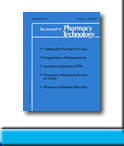 |
 |
TREATMENT OF VERY HIGH
TRIGLYCERIDES WITH FISH OILS: A REVIEW OF 2 CASES
Michael F Caron, Isabelle T Nguyen, and Jon E
Folstad
To request full article click here.
OBJECTIVE: To report 2 cases of serum triglycerides >1000 mg/dL (i.e., very high serum triglycerides) in which fish oil was used because of treatment failure or intolerance with conventional therapeutic modalities.
CASE SUMMARY: Two individuals with a history of serum triglycerides >1000 mg/dL were referred to a pharmacist-managed lipid clinic by their primary-care provider because of either treatment failure or intolerance to conventional therapeutic modalities. Fish oils were used in lieu of and in addition to conventional treatment modalities in cases 1 and 2, respectively. Both cases demonstrated that fish oil, at doses ranging from 1 to 6 g/d, decrease triglyceride levels to a degree similar to conventional measures. Both patients tolerated fish oil well; however, increases in liver transaminases were observed.
DISCUSSION: Published studies have shown that fish oil can reduce elevated plasma triglycerides by an average of 30–52% in subjects with borderline-high (150–199 mg/dL) to high (200–499 mg/dL) triglycerides. Both of our cases reflect similar results in patients with very high triglycerides. Although fish oil has not been reported to induce hepatotoxicity, both of our patients experienced an increase in transaminases while on fish oil therapy. Whether fish oil truly causes hepatic injury remains to be elucidated.
CONCLUSIONS: Fish oil supplementation is effective and generally well tolerated in patients with very high triglycerides and can be used as either alternative or adjunctive therapy when conventional treatment modalities become ineffective or intolerable.
J Pharm Technol 2002;19:14-8.
To request full article click here.
|
|
|
||
|

